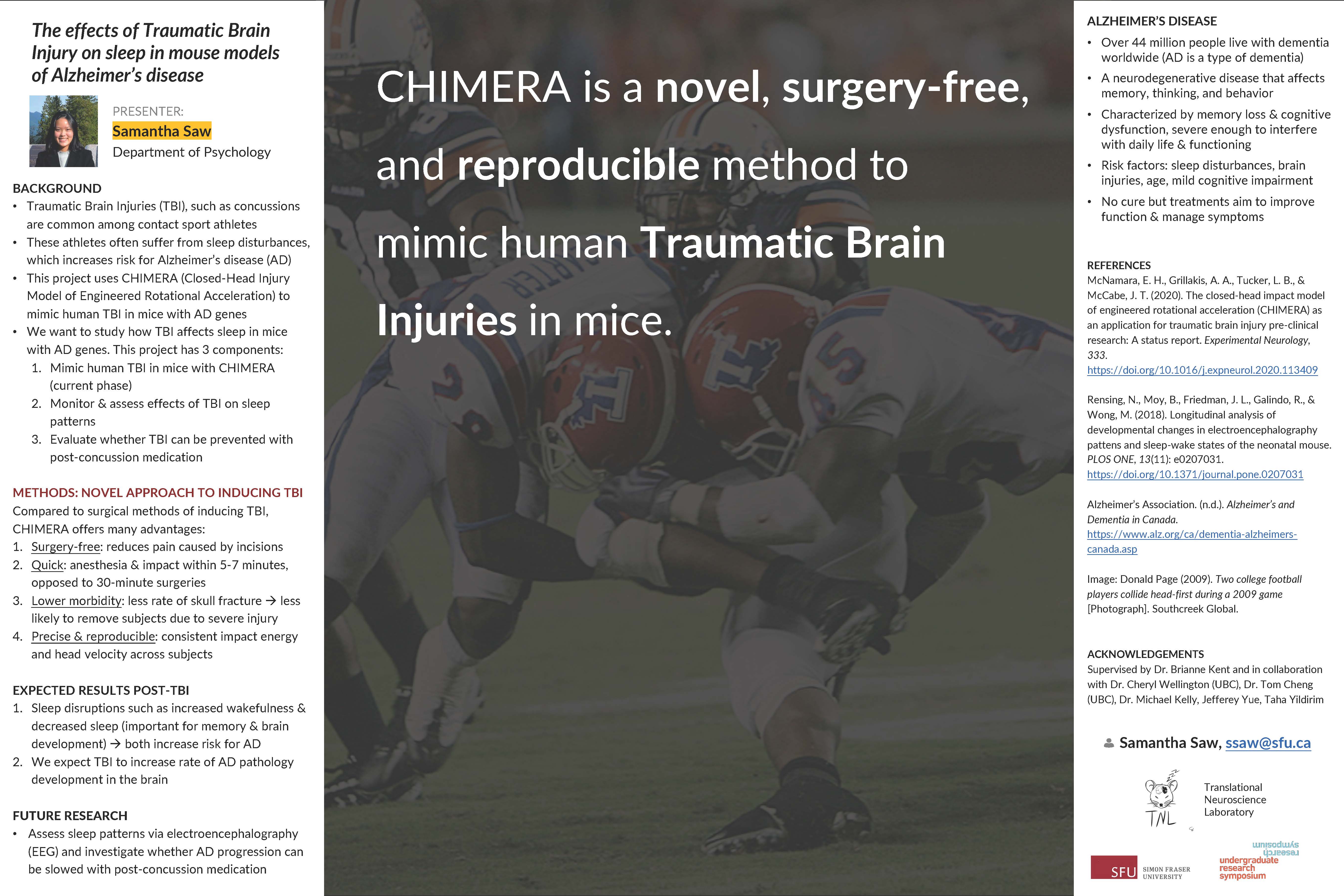The effects of Traumatic Brain Injury on sleep in mouse models of Alzheimer’s disease
Main Article Content
Abstract
Athletes that participate in contact sports are at high risk for Traumatic Brain Injuries (TBI), such as concussions. Often, these athletes suffer from enduring cognitive dysfunctions and sleep disturbances, leading to an increased risk of neurodegenerative diseases like Alzheimer’s disease (AD). This project uses the CHIMERA (Closed-Head Injury Model of Engineered Rotational Acceleration) device to model repeated mild TBIs common in contact sport athletes. This approach reduces morbidity caused by the TBIs in mice, is a surgery-free procedure, and is a clinically relevant model of concussion.
The aim of the project is to select an appropriate mouse line (APP/PS1 or NL-F) for subsequent experiments that will be evaluating the effects of TBI on sleep, and whether AD-related pathology or sleep disturbances can be prevented by administering anti-seizure medication following a TBI. Both mouse models are transgenic models that were genetically modified to have mutations that cause AD in humans.
For the TBI procedure, the anesthetized mouse will be placed in a supine position and strapped onto a platform. Once the animal is aligned, TBI will be induced by projecting a pneumatically-driven piston, powered by compressed air, to a specific area of the head. The CHIMERA device allows for precisely-controlled and reproducible mechanical inputs. Mice will undergo three TBI inductions in a span of three days. This research will help us understand the sleep disturbances caused by mild TBI, and how this affects AD progression.
Faculty Supervisor: Dr. Brianne Kent, Department of Psychology, Simon Fraser University
Article Details

This work is licensed under a Creative Commons Attribution-NonCommercial-NoDerivatives 4.0 International License.

